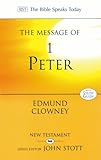My free “Awesome God” children’s CD arrived today, courtesy of Bob Kauflin at Sovereign Grace. As promised, here is the review (and no, thankfully it wasn’t like I had imagined).
First impressions – the case has been very professionally put together, including a choice of four cover images as well as 12 page booklet of lyrics and credits. The quality of musicianship and production is outstanding, and its a nice touch to have children singing on many of the tracks.
I’ll comment first on each track, before making some summary conclusions:
Almighty Creator is a hard hitting melodic rock track with a great melody in the chorus. The verses speak of God’s creative power, while the chorus speaks of the reason we were created – to love, worship and delight in God! It even includes a 70s harmonized guitar solo!
Forever God is a blues rock track with a fairly low key verse, that builds into a catchy chorus about God who goes “on and on and on …” Chuck Berry guitar solo on this one! I must confess that I can imagine myself singing the “you go on and on” chorus to people other than God.
You Are Always With Me is another rock track building from a low-key verse to a powerful chorus. The song is about God’s omniscience and omnipresence. Features some comedy synth lead lines.
Who is Like You is a mellow acoustic ballad, meditating of the greatness of God and the wonder that we can know him. Its a lovely song, although it doesn’t really have the feel of a children’s song. Like a number of tracks on the CD, it wouldn’t be out of place on an adult worship CD. The kids do join in singing towards the end of the track though, which is helpful for getting a feel of how it would sound in a children’s meeting.
Sovereign One follows on with another chilled out groove. I love the lyrics to this song, dealing with trust in God’s sovereignty through disappointments and difficulties. The message of this song is truly profound, and it brilliantly makes the subject accessible to children. “When things in my life don’t make sense I will trust in You”
Mighty Mighty Savior is an upbeat country song (I thought CJ hated country music?) dealing with the doctrine of total depravity. It tackles a difficult subject for a song in an admirable way, and though Christian parents (calvinists at least) will be happy with their children learning this doctrine through song, I can anticipate potential concern when a non-Christian hears their child returning from Kidz Klub singing about their evil heart. Also features a harmonica solo.
Jesus Came to Earth is a return to the style of earlier tracks, an upbeat rock song, with a fairly nondescript tune in the verse that builds to climactic chorus. Second time through the children echo each line of the verse, which works nicely. The verse quickly runs through the story of the incarnation through to the ascension, and the chrorus responds in praise.
Your Love is a high octane Avril Lavigne-esque rock track with an anthemic chorus celebrating the awesome love of God, with a focus on how it brings us back when we go astray, and directs us. Featuring shouting children over the top of the chorus.
Three In One is a slow blues rock groove with a great melodic tune that considers each of the three persons of the Trinity in a verse each, while the chorus offers praise to the Triune God.
For You are Holy is a very mellow and meditative ballad considering the uniqueness of God in the verses with a gentle chorus praising him for holiness. I wonder whether the line “only you can never die” might provoke questions from children about Jesus’ death. Overall though, the song does a good job of unpacking the phrase “there is none like you”, (which has become a cliché of Christian songs) into a form that children can appreciate.
The Gospel Song is another simple and gentle track. Containing only four lines, it encourages meditation on the incarnation and cross of Christ bringing us life. Its a beautiful and reflective track and once again, does not really come across as being exclusively for children.
Have You Heard is a song that expounds the gospel, explaining who Jesus is, the purpose of his death, and the second verse explains how to accept salvation. I read the lyrics of this track before hearing it, and thought they were excellent. I was hoping that the music would be more upbeat than the actual tune turned out to be, which is again quite gentle, although it steps up a gear for the chorus.
Conclusion
I was pleasantly surprised to find that none of the tracks on this album had me reaching for the skip button. Normally I would expect a few intolerably twee tracks on a Christian children’s CD. Less surprising, but equally pleasing, was the total absence of words such as “mega”, “cool”, “brill”.
Musically speaking the tunes are good, with some great catchy choruses. The songs cover a great range of subjects, and generally speaking they avoid both the meaningless clichés and doctrinal jargon that blight so many of our worship songs.
I thoroughly enjoyed listening to this CD, and may well make use of some of the songs for my own personal times of worship. My own children, aged 3 and 4 are a bit young to appreciate it, although they did have a dance to some of the tracks. The style of songs is quite different to the songs sung by the 5-10 year olds at my own church’s Kidz Klub, but I think they would benefit greatly from making use of some of these songs, or others with a similar commitment to sound doctrine in the lyrics.
I hope that this CD will be used by many churches in supplying songs for their children’s ministries, and also that it will inspire others to write similar children’s songs. Best of all, I can see great potential for children to be able to take these songs and offer them as genuine worship to their Lord. Well done and thank you to the folks at SGM who produced this CD.

 I was hoping that this would be a rubbish book. Fasting is not something I enjoy, and so I didn’t really want to be persuaded to do more of it. However, the new year is a traditional time for prayer and fasting in many churches, my own included, so I thought it would be a good time to read the book.
I was hoping that this would be a rubbish book. Fasting is not something I enjoy, and so I didn’t really want to be persuaded to do more of it. However, the new year is a traditional time for prayer and fasting in many churches, my own included, so I thought it would be a good time to read the book.


